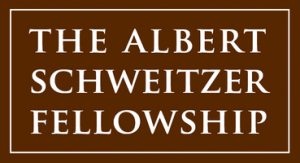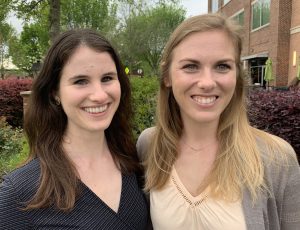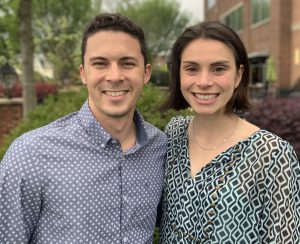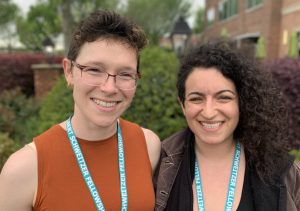These students will spend next year improving community health and developing lifelong leadership skills.

The North Carolina Albert Schweitzer Fellowship (NCASF) announced the selection of the 2019-20 class of Schweitzer Fellows. Twenty-eight graduate students will spend the next year learning to effectively address the social factors that impact health, and developing lifelong leadership skills. In doing so, they will follow the example set by famed physician-humanitarian Albert Schweitzer, for whom their fellowship is named.

Six of the 28 students attend the UNC School of Medicine.
Megan Barnes and Katherine Miller, who were named J Bradley Wilson Schweitzer Fellows, are aiming to reduce emergency room visits and hospitalizations by helping patients achieve personal health goals with an emphasis on mental health.
Michael Batres and Emma Astrike-Davis will work Prospect Hill Community Health Center and the Benson Area Medical Center, North Carolina Farmworker Health Program. They are helping migrant farmworkers enroll in eligible health insurance plans and are providing interpreter services in a rural clinic in order to improve their access to healthcare.

Margo Faulk and Noa Nessim are part of the Student Health Action Coalition. They are focused on improving the health of the low-income transgender community by providing free, culturally competent, gender-affirming care at a free clinic and creating opportunities for health professions students to gain experience in serving this vulnerable population.
Schweitzer Fellows develop and implement service projects that address the root causes of health disparities in under-resourced communities, while also fulfilling their academic responsibilities. Each project is implemented in collaboration with a community-based health and/or social service organization.

The NC Schweitzer Fellowship’s new class of Fellows will led a multitude of service initiatives including sexual assault prevention, support services for women giving birth, connect vulnerable populations to community resources, help patients achieve personalized health goals, provide free dentures and root canals, and much more.
Read more here about the NC Schweitzer Fellowship and the other recipients.